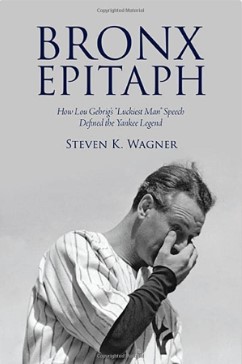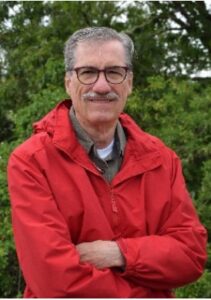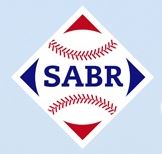 Bronx Epitaph – How Lou Gehrig’s “Luckiest Man” Speech Defined the Yankee Legend
Bronx Epitaph – How Lou Gehrig’s “Luckiest Man” Speech Defined the Yankee Legend
By Steven K. Wagner
State University of New York Press (2023)
$27.95
Whether you are a fan of Lou Gehrig, a follower of the Yankees or just would like to know the back story behind one of baseball’s most iconic moments, Steven Wagner’s “Bronx Epitaph – How Lou Gehrig’s ‘Luckiest Man’ Speech Defined the Yankee Legend” has something for you. It is a well-researched and well-written tale that uses the words of Lou Gehrig’s Farewell Speech to lead us through the story of the Hall of Famer’s Life and the relationships that led him to his luckiest man conclusion.
The speech was made (between games of a doubleheader) on Lou Gehrig Appreciation Day (July 4, 1939) – an event honoring a Yankee legend, a true “Iron Man,” then facing a debilitating, career-ending and life-threatening disease (Gehrig would live only 698 more days). It was a speech the humble Gehrig was reluctant to deliver and one that did not receive extensive coverage at the time. Yet, Gehrig’s remarks, which opened with “For the past two weeks, you’ve been reading about a bad break. Today, I consider myself the luckiest man on the face of the earth” and the image of a tearful Gehrig at the microphone, are considered among the most iconic moments and images in baseball lore.
His (Gehrig’s) speech was a baseball moment that had nothing to do with playing. It was baseball ‘s Gettysburg address.
Marty Appel, Baseball Historian
In Bronx Epitaph, author Steven Wagner presents what is clearly the most deeply researched and best-documented version of Lou Gehrig’s farewell speech. Only four sentences of the speech captured on film are known to be available and there is no known complete audio recording of Gehrig’s remarks. In his research, Wagner used not only available film and audio, but news accounts from a wide range of publications – giving particular credence to quotes or paraphrases that appeared in multiple stories. In fleshing out the story of the speech and Gehrig’s life, Wagner also interviewed a host of players – all former Yankees – and even a fan who was in the stands that day. In the process, Wagner developed not only the most in-depth accounting of Gehrig’s farewell speech, but an equally in-depth look at Gehrig’s life and character.
Using the Farewell Speech – and filling in the back story of each sentence – Wagner tells the tale of Gehrig the ballplayer and Gehrig the man. We see a fierce and talented competitor, a dedicated teammate, a humble and caring person, an individual of great integrity and a man who recognized and was thankful for all those who contributed to what he saw as a great and ”lucky” life. In Yankee manager Joe McCarthy’s words, as quoted in Wagner’s book, Gehrig was “the finest example of a ball player, sportsman and citizen that baseball has ever known.”
The emotional nature of Gehrig’s speech (and the day itself) may be reflected in the fact that the speech almost didn’t happen. Here’s how Wagner describes it, “As Gehrig stood on the grass that day, struggling to hold back his tears, Mercer (sportswriter Sid Mercer, emcee of the event) announced that the Yankee was too overcome with emotion and would not be speaking. He then thanked the crowd for coming out to honor the man. Unfortunately for their quiet hero, those in the crowd would not be dismissed lightly and they quickly and collectively took over, rising to their feet and chanting his name over and over. Finally, (Joe) McCarthy, a father figure to the slugger, put his hand on Gehrig’s back and gently ushered him over to the microphone, urging him to speak.” The rest, as they say, is history.
In the introduction to Bronx Epitaph, Wagner takes the reader through Gehrig’s childhood, when his family often faced economic challenges; through his high school years, when he excelled at both baseball and football (and, as Wagner reports “At first declined to play on the baseball team because he was shy about appearing in front of crowds;” through his years at Columbia University (where he was a fullback on the football team and a pitcher/first baseman on the baseball squad; and on to highlights of his Hall of Fame career as a Yankee.
But the story really starts when Wagner begins to recreate and analyze Gehrig’s farewell speech – made at a time when Gehrig was facing the toughest challenge of his life and still thought of himself as the luckiest man on the face of the earth. Gehrig went on to cite the reasons why he felt that way, and those reasons had nothing to do with fame, fortune, Most Valuable Player Awards or championship rings, but rather were based on the people and relationships that had built his character and shaped his life.
In his remarks Gehrig thanked the fans; his teammates; Yankee owner Jake Ruppert; Yankee executive Ed Barrow; Yankee managers Miller Huggins and Joe McCarthy; his Yankee roommate Bill Dickey; the rival New York Giants; stadium vendors, groundskeepers and office staff; sportswriters; his mother-in-law; his parents; and his wife.
“He (Gehrig) was a beloved player, because of who he was, not just because of how he played. What he spoke that day came from his heart. When the people who in your heart are your mother-in -law and ticket takers, that says a lot about your character.”
Former Yankee Mike Buddie
In his book, Wagner outlines Gehrig’s relationship with each of those he thanked in that speech – telling Gehrig’s life story along the way. And – as the humble Gehrig would have preferred – also provides insight into the lives, careers and accomplishments of each individual or group included in his list of thank you’s.
Wagner writes about Jacob Ruppert’s commitment to building the Yankee franchise; how and why Ed Barrow signed Gehrig to his first baseball contract; Gehrig’s relationship with his teammates, particularly roommate Bill Dickey (nicknamed The Man Nobody Knows); Gehrig’s family life and the positive impact that Gehrig’s parents, wife and mother-in-law had on building his “lucky life;” and much, much more. Readers even get a glimpse of Gehrig’s challenging life after he left baseball and some insight into the Gehrig-Ruth rift.
I found Bronx Epitaph to be a great read. As I’ve often said of Baseball Roundtable research “one thing always seems to lead to another.” That’s also true about Wagner’s Bronx Epitaph – one story from Gehrig’s life leads to another and, then, another – and in the end, they lead to the tale of a great ballplayer and a great person.
Other books by Steven K. Wagner include:
- The Four Home Runs Club: Sluggers Who Achieved Baseball’s Rarest Feat. Review here.
- Perfect: The Rise and Fall of John Paciorek, Baseball’s Greatest One-Game Wonder. Review here.
- Game Won: How the Greatest Home Run Ever Hit Sparked the 1988 Dodgers to Game One Victory and an Unlikely World Series Title. Review here.
- Seinsoth: The Rough and Tumble Life of a Dodger. Review here.
BASEBALL ROUNDTABLE TALKS WITH STEVEN WAGNER
 Roundtable: What prompted your decision to tackle the Luckiest Man speech as a book topic?
Roundtable: What prompted your decision to tackle the Luckiest Man speech as a book topic?
Wagner: I’ve always been intrigued by Lou Gehrig, not only his greatness but his squeaky-clean persona. However, it’s The Speech that I found most intriguing – how a man near the peak of his athleticism could have everything taken away from him and still consider himself lucky. As I looked into the speech and read assumed transcripts, I decided to put together a more likely transcript and look into exactly why he said what he did on that warm summer day.
Roundtable: How long did the research take and what was the most challenging aspect?
Wagner: I probably spent six months researching for the book. I think the most difficult part was searching for quotations from publications that haven’t existed for decades. I then compared quotes from one news source to another to determine what Gehrig truly did say and what he didn’t say.
Roundtable: Were there any surprises along the way? Things you didn’t expect to learn about Gehrig or any of the other principals in the book?
Wagner: I didn’t realize at the outset that Gehrig had no interest in speaking that day, that manager Joe McCarthy actually patted him on the back and encouraged him to talk, which he only reluctantly did. I really think McCarthy understood better than anyone the mark that Gehrig would have on history by speaking. I also didn’t realize that earlier in the day a little-known player named Johnny Welaj was honored at home plate in similar fashion. Before it was Lou Gehrig Appreciation Day it was actually Johnny Welaj Day.
Roundtable Note: In true Baseball Roundtable fashion,“one things always leads to another” and you’ll find more about Welaj at the end of this post.
Roundtable: If you had to sum up Lou Gehrig in a single sentence, how would you do it?
Wagner: No player in major-league history had the impact on baseball that Lou Gehrig did, and The Speech played a big role in the legacy he left.
Roundtable: You’ve written about one game careers (Paciorek): the Gibson World Series home run; Four-Homer Games; and Bill Seinsoth’s career. How do you select what players, events or topics you are going to explore?
Wagner: I always choose topics that I know I’d enjoy writing about and that I believe others would enjoy reading about. If I can’t enjoy working on a book project, it’s unlikely I can put enough into it to make the reader enjoy it.
________________________________________________
One Thing Leads to Another … J0hnny Welaj Shares Lou Gehrig’s Day
In traditional Roundtable “one thing leads to another” fashion, one of author Steven Wagner’s answers led me to look deeper into Johnny Welaj – who also had a “Day” on July 4. Welaj, it runs out was a Washington Senators’ rookie outfielder, with 31 MLB games under his belt. The 25-year-old was in his fourth professional season.
As David E. Skelton reports in his Society for American Baseball Research Johnny Welaj biography, Welaj was born in Pennsylvania, but grew up in Manville, New Jersey (40 miles from New York City) – and was “a standout athlete in football, basketball, and especially baseball,” at Bound Brooke High School (and later in semi-pro baseball in the area). Signed by the Senator in 1936, the speedy Welaj, as noted, made his way to the major leagues by 1939. With the senators visiting nearby New York City on Independence 1939, Skelton reports that hundreds of Welaj’s friends, relatives and neighbors traveled from Manville to Yankee Stadium to celebrate “Johnny Welaj Day” before the first game of the twin bill. Reportedly, Welaj was not aware that the Gehrig appreciation event would be taking place between games of the doubleheader.
Welaj played in just four MLB seasons (1939-41, 1943), hitting .250-4-74, with 36 steals in 293 games. (His MLB career was uninterrupted by military service.) He played in 15 minor-league campaigns – the final one in 1956 at age 42. A true baseball lifer, Welaj spent seven decades in the game as a player, coach, manager and front office executive (including a ten-year stint as the Texas Rangers’ Director of Stadium Operations).
______________________________________________
Baseball Roundtable – Blogging Baseball Since 2012.

 Baseball Roundtable is on the Feedspot list of the Top 100 Baseball Blogs. To see the full list, click here.
Baseball Roundtable is on the Feedspot list of the Top 100 Baseball Blogs. To see the full list, click here.
Baseball Roundtable is also on the Anytime Baseball Supply Top 66 Baseball Sites list. For the full list, click here.
I tweet (on X) baseball @DavidBaseballRT
Follow Baseball Roundtable’s Facebook Page here. More baseball commentary; blog post notifications.
Member: Society for American Baseball Research (SABR); Negro Leagues Baseball Museum; The Baseball Reliquary.






My first symptoms of ALS occurred in 2014, but was diagnosed in 2016. I had severe symptoms ranging from shortness of breath, balance problems, couldn’t walk without a walker or a power chair, i had difficulty swallowing and fatigue. I was given medications which helped but only for a short burst of time, then I decided to try alternative measures and began on ALS Formula treatment from Tree of Life Health clinic. It has made a tremendous difference for me ((Visit www.healthcareherbalcentre.com) ). I had improved walking balance, increased appetite, muscle strength, improved eyesight and others. ]